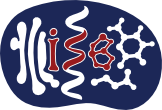Neguembor MV, Martin L, Castells-García Á, Gómez-García PA, Vicario C, Carnevali D, AlHaj Abed J, Granados A, Sebastian-Perez R, Sottile F, Solon J, Wu CT, Lakadamyali M, Cosma MP. Transcription-mediated supercoiling regulates genome folding and loop formation. Mol Cell. 2021 Aug 5;81(15):3065-3081.e12. doi: 10.1016/j.molcel.2021.06.009. Epub 2021 Jul 22. PMID: 34297911; PMCID: PMC9482096.
Abstract
The chromatin fiber folds into loops, but the mechanisms controlling loop extrusion are still poorly understood. Using super-resolution microscopy, we visualize that loops in intact nuclei are formed by a scaffold of cohesin complexes from which the DNA protrudes. RNA polymerase II decorates the top of the loops and is physically segregated from cohesin. Augmented looping upon increased loading of cohesin on chromosomes causes disruption of Lamin at the nuclear rim and chromatin blending, a homogeneous distribution of chromatin within the nucleus. Altering supercoiling via either transcription or topoisomerase inhibition counteracts chromatin blending, increases chromatin condensation, disrupts loop formation, and leads to altered cohesin distribution and mobility on chromatin. Overall, negative supercoiling generated by transcription is an important regulator of loop formation in vivo.

